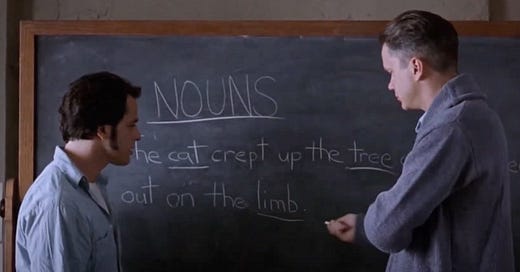Nashville resident John Jameson recently went viral on TikTok for a pro-abortion argument that many people were apparently floored by. I suppose, as someone who has been professionally active in pro-life apologetics for well over a decade, my standards for being floored are a bit higher than most. John Jameson’s argument, in any event, seems just radically simple to refute, so much so that you don’t even need to be pro-life to do it. Here’s the crux:
"If my mom was pregnant with me today, like, let's assume in 2024 in Tennessee — a state with one of the most restrictive abortion laws in the country — she could not get an abortion, right? In the eyes of the Tennessee government, her bodily autonomy means jack shit because they believe in the 'life of the fetus' and that life begins at conception, and that aborting that fetus would be committing murder, right?"
"So, let's say she gives birth to me … and then 20 years later, I go into kidney failure, and I require a kidney transplant to survive, and my mother is the only viable match on the planet. … My mother could die … and we could still not harvest the kidney from her corpse to give to me. So, even as a corpse, her bodily autonomy is held in such high regard that they would rather let me die than infringe on that freedom.”
“So when pro-lifers [talk about] the life of a fetus, and that aborting the fetus is murder, it’s a super disingenuous argument to make. Because bodily autonomy is widely respected in every other context except for this one. Except in the context that allows them the most control over a woman’s body. So that’s why I don’t really believe them when they make this bullshit claim.”
Again, the argument here seems almost shockingly simple to refute. A number of pro-life responses to this video have already touched on some of the more philosophically complex points here—e.g., allowing someone to die via kidney failure is morally not the same as actively killing them via abortion—but really the most effective counterpoint is even simpler than that. Let’s consider a counter-hypothetical:
Suppose that when you are an infant, your mother raises you in such an unhealthy environment, exposed to so many toxins and poisonous chemicals, that she causes severe damage to your kidneys by the time you are, say, six years old—so much so that without a transplant you will die. It is unquestionably your mother’s fault that you are on the verge of death: She constantly let you eat lead paint, say, or she let you play with exposed mercury from broken thermometers, etc, all while knowing (and not caring) that these things were dangerous and potentially fatal to you. Your mother is arrested for child abuse; while you are near death it is discovered that your mother is the “only viable match on the planet” for your needed kidney transplant. Is she obligated to provide a kidney to save your life, given that she has directly brought about your looming death from kidney failure in the first place?
I think many if not most people would say “yes,” certainly as a moral question if not a legal one. Wouldn’t you say the same? I know I would! We don’t normally insist that criminals pay for their crimes in the form of bodily organs, of course. But in the case where a parent’s willful, irresponsible behavior has led to a scenario in which their child’s life is directly at risk, an extraordinary measure like this seems at least defensible.
It is the same with abortion, of course. In all but a vanishingly rare number of cases, a mother’s personal, willful decision—to have sex—brought about her baby’s life. It was her decision to engage in behavior that led to her baby’s being conceived. The fact that she did not want to conceive a baby is irrelevant, just as it would be irrelevant if, in the scenario above, a mother did not explicitly want her child to suffer from fatal kidney damage. In either case a mother has a responsibility to account for the consequences of her actions.
It’s why the “kidney harvest” scenario fails as a philosophical proof. Of course we are not required to give our bodies—organs or otherwise—to other people because of circumstances that were beyond our control. If your kidney fails as a result of extrinsic circumstances I do not owe you mine. But if I do something that I know could cause your specific kidney to fail, and it does fail, you can absolutely make the case that I might owe you one of my kidneys in turn.
In the same way, a woman’s decision to engage in an act which very obviously might bring about a new life absolutely makes her responsible for any life that may result, which is to say a woman should not be allowed to kill a human being that she brought about of her own volition. This is not controversial—unless of course you are pro-abortion and want to pretend it’s controversial. But for the rest of us it’s pretty simple and obvious.




I feel like there is an even simpler refutation of that dipstick’s argument.
The mother’s kidney is part of her body. The baby is not.